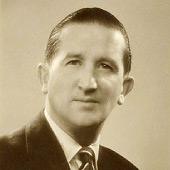|
|
|
 |
|
|
|
|
 |
Born in Switzerland, Marcel Junod graduated from the Coll ge de Gen ge de Gen ve (now Coll ve (now Coll ge Calvin), where he specialized in surgery. In 1935, while deployed in Ethiopia as a delegate for the International Committee of the Red Cross during the Second Italo-Abyssinian War, he provided humanitarian aid to many people, regardless of their nationality, ethnicity or religion. He also served as vice president of the ICRC. ge Calvin), where he specialized in surgery. In 1935, while deployed in Ethiopia as a delegate for the International Committee of the Red Cross during the Second Italo-Abyssinian War, he provided humanitarian aid to many people, regardless of their nationality, ethnicity or religion. He also served as vice president of the ICRC.
|
As a delegate for the ICRC, Dr. Junod took on life-threatening assignments one after another, first during the Second Italo-Abyssinian War and then in the Spanish Civil War and World War II. During those years he devoted himself to humanitarian activities, including checking on the fate of prisoners and other victims, facilitating communication between prisoners and their families, arranging for the shipment of aid supplies to prisoners and war victims and providing medical support. All of these activities required Dr. Junod to overcome obstacles that would seem unthinkably difficult today. He faced these challenges with an unfailing spirit of love.
On August 9, 1945, three days after the atomic bombing of Hiroshima, another atomic bomb was dropped on Nagasaki. Dr. Junod arrived in Japan that day as head of the ICRC delegation. His original goal was to improve the treatment of prisoners of war in accordance with the International Humanitarian Law and to ensure their repatriation once the war finally came to a close. The war ended, and, while still working toward his initial goal of providing support for prisoners, Junod learned of the unimaginably horrible conditions in Hiroshima from a subordinate who had entered the city on August 29. He immediately went to the General Headquarters of the Allied Forces and strongly urged them to provide aid. The negotiations were difficult, but with his indomitable spirit and dogged persistence Dr. Junod succeeded in getting GHQ to airlift 15 tons of medicine and other medical supplies to Hiroshima. Upon his arrival on September 8, Dr. Junod looked into the situation in the city following the bombing and treated many victims personally. The lives of tens of thousands of victims were saved through his efforts. After he left Japan, Dr. Junod spoke out about the inhumanity of the poison gas and nuclear weapons he had seen during his years as an ICRC delegate. The life of this philanthropist ended all too soon when he was only 57.
In 1979, a monument to Dr. Junod was erected in Hiroshima Peace Memorial Park in honor of his achievements and in an expression of deep gratitude to him. An excerpt from his book Le Troisi me Combattant (Warrior Without Weapons) is inscribed on the monument. It includes this quotation: me Combattant (Warrior Without Weapons) is inscribed on the monument. It includes this quotation:
"Those who call for help are many. It is you they are calling."
|
|
|
|
|